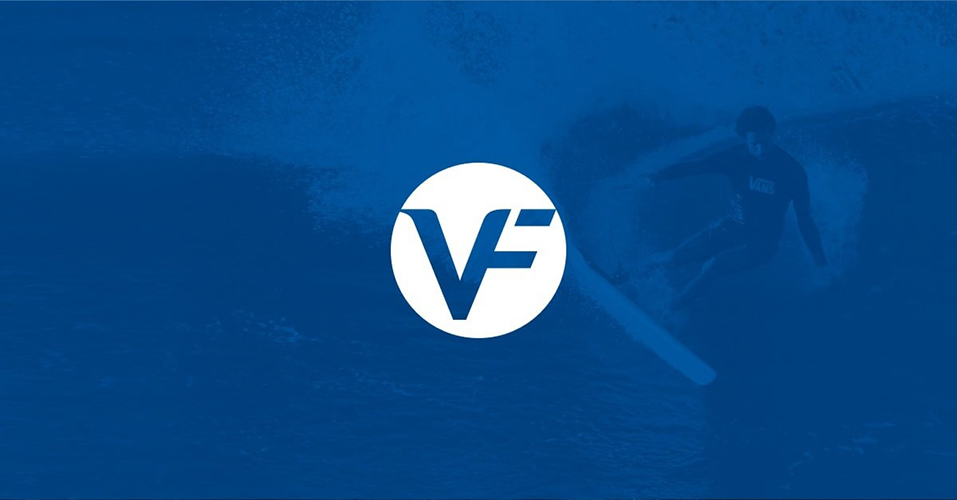VF Corp. reported revenue in the fourth quarter ended March 31 decreased 11 percent on a reported basis and was down 10 percent in constant dollars.
Revenue decreased 11 percent (down 10 percent in constant dollars) to $2.1 billion driven by lower consumer demand as a result of the COVID-19 outbreak and related government actions and regulations. Sales came in below Wall Street’s consensus target of $2.36 billion.
In the Outdoor segment, sales were down 15 percent on a reported basis to $848.3 million and were down 14 percent on a currency-neutral basis. The segment showed a loss of $9.0 million against operating earnings of $31.8 million a year ago. Outdoor brands include Altra, Icebreaker, Smartwool, The North Face and Timberland.
In the Active segment, sales were down 9 percent and fell 8 percent on a currency-neutral basis. Operating earnings fell 33.5 percent to $154.6 million from $232.6 million a year ago. Active brands include Eagle Creek, Eastpak, JanSport, Kipling. Napapijri and Vans.
In the Work segment, sales were down 1 percent to $211.6 million and were flat on a currency-neutral basis. The Work segment showed an operating loss of $1.75 million against earnings of $12.6 million a year ago. Work brands include Bulwark Protection, Dickies, Horace Small, Kodiak, Red Kap, Terra, VF Solutions and Walls.
Among the four major brands, sales of The North Face were down 14 percent on a reported basis and 13 percent on a currency-neutral basis. On a currency-neutral basis, sales were down 21 percent in the Americas, rose 4 percent in EMEA, and were down 26 percent in APAC.
Sales of Vans were down 7 percent on a reported basis and 6 percent on a currency-neutral basis. On a currency-neutral basis, sales were down 7 percent in the Americas, down 2 percent in EMEA, and off 5 percent in APAC.
Sales of Timberland were down 19 percent on a reported basis and 18 percent on a currency-neutral basis. On a currency-neutral basis, sales were down 10 percent in the Americas, down 18 percent in EMEA, and off 34 percent in APAC.
Sales of Dickies were down 3 percent on a reported basis and 2 percent on a currency-neutral basis. On a currency-neutral basis, sales were up 7 percent in the Americas, up 2 percent in EMEA, and were down 35 percent in APAC.
By geographic area, sales in the Americas were down 10 percent on both a currency-neutral and reported basis. EMEA’s sales were down 7 percent on a reported basis and 5 percent on a currency-neutral basis.
APAC’s sales were down 23 percent on a reported basis and fell 22 percent on a currency-neutral basis. In China, sales were down 33 on a reported basis and fell 31 percent on a currency-neutral basis. In the America (non-U.S.) region, sales were down 11 on a reported basis and fell 10 percent on a currency-neutral basis.
Gross margin decreased 150 basis points to 53.1 percent, primarily driven by elevated promotional activity to clear excess inventory, partially offset by a favorable mix shift toward higher-margin businesses. On an adjusted basis, gross margin decreased 100 basis points to 53.9 percent.
Operating loss on a reported basis was $(257) million. On an adjusted basis, operating income decreased 51 percent to $87 million. Operating margin on a reported basis decreased to (12.2) percent. Adjusted operating margin decreased 350 basis points to 4.1 percent.
Earnings (loss) per share was $(1.22) on a reported basis. On an adjusted basis, earnings per share decreased 70 percent (down 69 percent in constant dollars) to 10 cents a share, below Wall Street’s consensus estimates of 18 cents.
Full Year Fiscal 2020 Income Statement Review
Revenue increased 2 percent (up 4 percent in constant dollars) to $10.5 billion. Excluding the impact of acquisitions and divestitures and on an adjusted basis, revenue increased 3 percent (up 4 percent in constant dollars), driven by VF’s two largest brands, and our International and Direct-to-Consumer platforms.
Gross margin increased 70 basis points to 55.3 percent, including a favorable mix shift toward higher-margin businesses. On an adjusted basis, gross margin increased 70 basis points to 55.5 percent.
Operating income on a reported basis was $928 million. On an adjusted basis, operating income increased 4 percent (up 6 percent in constant dollars) to $1.345 billion. Operating margin on a reported basis decreased 280 basis points to 8.8 percent.
Adjusted operating margin increased 30 basis points to 12.8 percent.
Earnings per share were $1.57 on a reported basis. On an adjusted basis, earnings per share increased 5 percent (up 7 percent in constant dollars) to $2.68.
“Through the first ten months of fiscal 2020 our business delivered results above our stated long-term growth objectives. Then the world changed for all of us as a result of COVID-19,” said Steve Rendle, chairman, president and chief executive officer. “From the early days of the outbreak, VF has taken a people-first approach in our COVID-19 response, prioritizing the health and safety of our people, while also protecting their financial well-being. As we’ve implemented measures to care for and protect our people, we’ve also taken several key actions to advance our Enterprise Protection Strategy,” Rendle continued. “These prudent actions, most of which have been precautionary, have helped us preserve liquidity and given us more flexibility to manage our global business operations through the prolonged crisis. Moving forward we’re committed to using this moment to set VF and our brands up for the next successful chapter in our 121-year history.”
Balance Sheet Highlights
Inventories were up 10 percent compared with the same period last year. In fiscal 2020, VF returned approximately $750 million of cash to shareholders through dividends. The company also repurchased approximately $1 billion of shares and has $2.8 billion remaining under its current share repurchase authorization. As part of the company’s liquidity preservation actions during the ongoing COVID-19 outbreak, the company has suspended its share repurchase program.
Full Year Fiscal 2021 Outlook
Due to the uncertainty of the duration and severity of COVID-19, governmental actions and regulations in response to the pandemic and the speed with which the pandemic is developing and impacting VF, its consumers, customers and suppliers, it is not possible to provide a financial outlook for full-year fiscal 2021 at this time. First-quarter fiscal 2021 revenues are expected to be down slightly more than 50 percent. Full-year fiscal 2021 free cash flow is expected to exceed $600 million.
Discontinued Operations – Occupational Workwear Business and Kontoor Brands Business
On January 21, 2020, VF announced its decision to explore the divestiture of its Occupational Workwear business. The Occupational Workwear business is comprised primarily of the following brands and businesses: Red Kap®, VF Solutions®, Bulwark, Workrite, Walls, Terra, Kodiak, Work Authority and Horace Small. The business also includes certain Dickies® occupational workwear products that have historically been sold through the business-to-business channel.
During the three months ended March 2020, the company determined that the Occupational Workwear business met the held-for-sale and discontinued operations accounting criteria. Accordingly, the company has reported the related held-for-sale assets and liabilities as assets and liabilities of discontinued operations and included the operating results and cash flows of the business in discontinued operations for all periods presented.
On May 22, 2019, VF completed the spin-off of its Jeans business, which included the Wrangler, Lee and Rock & Republic brands, as well as the VF OutletTM business, into an independent, publicly-traded company under the name Kontoor Brands, Inc. (“Kontoor Brands”). Accordingly, the company has removed the assets and liabilities of the Jeans business as of this date and included the operating results and cash flows of the business in discontinued operations for all periods presented.
Adjusted Amounts – Excluding Transaction and Deal Related Expenses, Costs Related to Office Relocations and Specified Strategic Business Decisions, Noncash Impairment Charge, Pension Settlement Charge, the Impact of Debt Extinguishment and the Impact of Tax Legislation
The adjusted amounts in this release exclude transaction and deal-related expenses associated with the acquisitions and integration of the Icebreaker and Altra brands. The adjusted amounts in this release also exclude transaction expenses associated with the completed spin-off of the Jeans business that did not meet the criteria for discontinued operations. Total transaction and deal-related expenses were approximately $22 million in fiscal 2020. The fiscal 2020 amounts also exclude an adjustment to tax expense in the third quarter of fiscal 2020 of approximately $10 million associated with the loss on sale for the Reef® divestiture.
The adjusted amounts in this release exclude costs associated with the previously announced relocation of VF’s global headquarters and certain brands to Denver, Colorado. The adjusted amounts in this release also exclude costs related to strategic business decisions in South America and the operating results of jeanswear wind down activities in South America following the spin-off of Kontoor Brands. The adjusted amounts also exclude certain cost optimization activities indirectly related to the strategic review of the Occupational Workwear business. Total costs were approximately $21 million in the fourth quarter of fiscal 2020 and $72 million in fiscal 2020. In addition, the fourth quarter and full-year fiscal 2020 exclude approximately $48 million of noncash non-operating expenses related to the release of certain currency translation amounts associated with the wind-down activities in South America.
The adjusted amounts in this release exclude a noncash goodwill impairment charge related to the Timberland® reporting unit of approximately $323 million in the fourth quarter and full-year fiscal 2020.
The adjusted amounts in this release exclude a noncash pension settlement charge. The pension settlement charge was a result of actions taken to reduce risk, volatility and the liability associated with VF’s U.S. pension plan. Total expense was approximately $23 million in fiscal 2020.
The adjusted amounts in this release exclude the impact of debt extinguishment that resulted from the premiums, amortization and fees associated with cash tender offers for VF’s outstanding 2033 6.00 percent and 2037 6.45 percent notes, and the full redemption of VF’s outstanding 2021 3.50 percent notes. The total impact of debt extinguishment was approximately $68 million in the fourth quarter and full-year fiscal 2020.
The adjusted amounts in this release exclude the impact of recent Swiss tax legislation. On May 19, 2019, Switzerland voted to approve the Federal Act on Tax Reform and AHV Financing (“Swiss Tax Act”). The Swiss Tax Act was enacted during fiscal 2020, the transitional impact of which resulted in a net tax expense of approximately $71 million in the fourth quarter of fiscal 2020 and a net tax benefit of approximately $94 million in fiscal 2020. Additionally, the fiscal 2020 amounts also exclude an adjustment to tax expense in the fourth quarter of fiscal 2020 of approximately $3 million associated with the transitional impact of the Tax Cuts and Jobs Act (“U.S. Tax Act”).
Combined, the above items negatively impacted earnings per share by $1.32 during the fourth quarter of fiscal 2020 and $1.11 during fiscal 2020. All adjusted amounts referenced herein exclude the effects of these amounts.
Adjusted cash flow from continuing operations reflects the impact of the cash-related acquisition, integration, divestiture, separation, relocation and other strategic business decision costs paid in fiscal 2020. Free cash flow represents adjusted cash flow from operating activities, less capital expenditures.
Reconciliations of measures calculated in accordance with GAAP to adjusted amounts are presented in the supplemental financial information included with this release, which identifies and quantifies all excluded items, and provides management’s view of why this information is useful to investors.
COVID-19 Outbreak Update and Response Summary
As the global spread of COVID-19 continues, VF remains first and foremost focused on a people-first approach that prioritizes the health and well-being of its employees, customers, trade partners and consumers around the world. To help mitigate the spread of COVID-19 and in response to health advisories and governmental actions and regulations, VF has modified its business practices, including the temporary closing of offices and retail stores, instituting travel bans and restrictions, implementing health and safety measures including social distancing and quarantines.
VF has taken several proactive actions to advance its Enterprise Protection Strategy in response to the COVID-19 outbreak. These actions have included: temporarily reducing the CEO’s base salary by 50 percent and the VF Executive Leadership Team’s base salaries by 25 percent; temporarily forgoing the cash retainer paid to VF’s Board of Directors; completing a $3 billion bond offering to establish a significant cash buffer to ensure near-term liquidity; temporarily suspending its share repurchase plan; and proceeding with the previously announced divestiture of VF’s Occupational Workwear business as an additional source of cash. As of the date of this release, VF has approximately $3 billion of cash on hand in addition to approximately $2.2 billion available under its revolving credit facility.
Currently, all of VF’s retail stores in the APAC region, including Mainland China, have re-opened. While retail store traffic has improved recently, it remains down significantly compared with the prior year. VF has started a phased reopening of its retail stores in the EMEA region, in accordance with guidance from government entities and healthcare authorities. In North America, VF is prepared to begin a phased reopening of its retail stores also subject to guidance from government entities and healthcare authorities to allow proper training and preparation of the retail environment. VF currently expects most of its retail stores to be open by mid-calendar year 2020. While most of VF’s wholesale customers in North America and EMEA remain closed, many have announced reopening plans in the coming weeks.
Consistent with VF’s long-term strategy, the company’s digital platform remains a high priority through which its brands stay connected with consumer communities while providing experiential content. VF continues to operate its global network of distribution centers with enhanced health and safety protocols to serve the company’s consumers and customers.
COVID-19 has also impacted some of VF’s suppliers, including third-party manufacturers, logistics providers and other vendors. At this time, many of VF’s facilities continue to manufacture and distribute products globally in a reduced capacity. VF is actively monitoring its supply chain and implementing mitigation plans.
VF believes it has sufficient liquidity and flexibility to operate during the disruptions caused by COVID-19 and related governmental actions and regulations and health authority advisories. However, due to the uncertainty of the duration and severity of COVID-19, governmental actions in response to the pandemic and the speed with which this pandemic is developing and impacting VF, its consumers, customers and suppliers, it is not possible to reasonably estimate the extent of the impact on VF’s financial condition or results of operations at this time.
Logo courtesy VF Corp.















